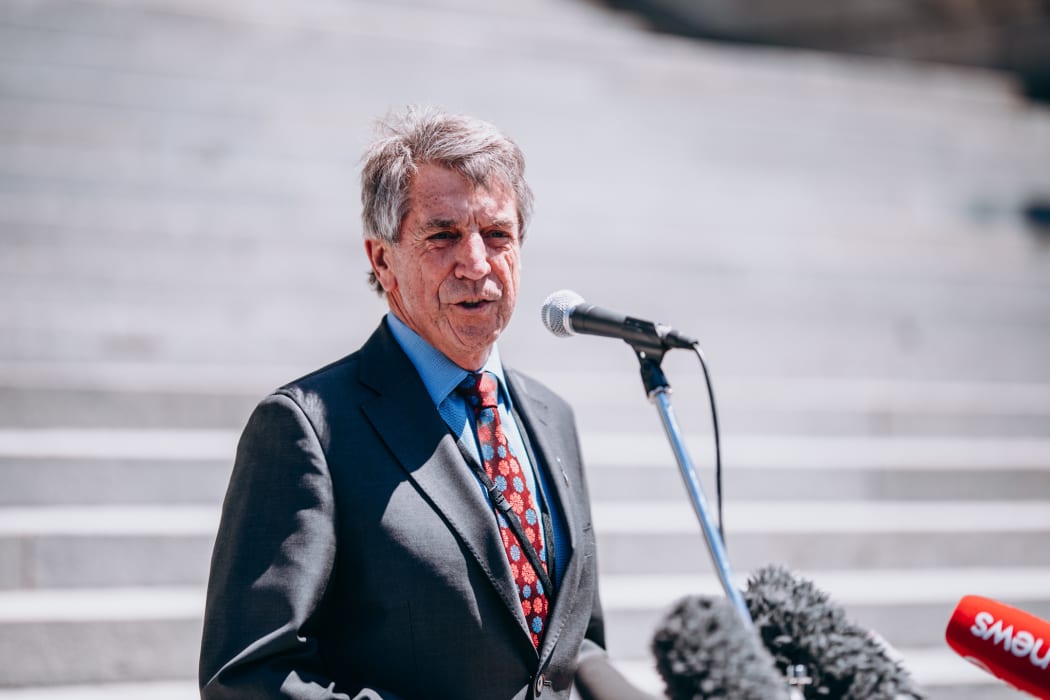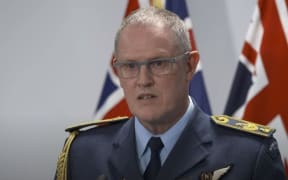The chief ombudsman has opened an investigation into whether the Defence Force deliberately misled him during an inquiry into civilian deaths in Afghanistan.

Chief ombudsman judge Peter Boshier. Photo: RNZ /Dom Thomas
The investigation follows a complaint by journalist Nicky Hager.
Hager alleges NZDF withheld crucial information from the Ombudsman, whose Operation Burnham investigation into New Zealand-backed strikes found the military suppressed information to Ministers and the public.
It found officials did not plot to cover up casualties, but the inquiry prompted an overhaul of the military's communications and recordkeeping.
Chief ombudsman judge Peter Boshier said in a letter to Hager "the gravity of this situation cannot be overstated".
Hager claimed in a complaint last July that NZDF should have revealed to the original investigation that there were four attacks in which people were killed, but instead only referred to one attack.
"A highly misleading version of the events of Operation Burnham was provided by NZDF to the Ombudsman as a supposed response to our OIA requests and your office's many month, multi-requester investigation," wrote Hager, whose book Hit and Run co-authored with Jon Stephenson, sparked the ombudsman inquiry.
"Without the subsequent independent inquiry, NZDF would have got away with hiding most of what occurred on the operation."
His complaint centred on an NZDF response to a 2017 OIA asking for full information about what went on on the battlefield in the operation.
Boshier apologised for the delay in responding to Hager, saying he had to take time to assess what to do.
If he had been misled "by the actions or omissions" of the NZDF, that undermined a "cornerstone of democracy".
He would personally investigate.
"These allegations have the potential to harm the ongoing trust and confidence in the integrity and accountability of the NZDF, and the effective operation of the OIA more generally by those who are subject to it," Boshier told Hager.
"They also have the potential to harm the ability of the New Zealand ombudsman to provide effective review and remedy for aggrieved requesters.
"The Official Information Act is in its 40th year here in New Zealand. I consider it to be one of the cornerstones of our democracy. As chief ombudsman I have the statutory function to ensure the act operates as intended by Parliament. I simply cannot allow it to be seen to be undermined, either deliberately or inadvertently by an agency that is subject to it."
In a statement he said he was concerned he may not have been given access to a complete set of information by NZDF during his original investigation.
"The purpose of my investigation will be to establish whether I was deliberately misled, or if poor record-keeping or other administrative practices meant that I was not provided with accurate or complete information.
"This is information that I had requested in order to carry out my statutory function under the Official Information Act."
The military says it looks forward to supporting the Chief Ombudsman.
"The New Zealand Defence Force looks forward to supporting the Ombudsman in his investigation into any differences in information that was available before and after the two-year government Inquiry into Operation Burnham and related matters," it said in a short statement this afternoon.
"A key finding of the inquiry was shortcomings in the NZDF's information management and retrieval systems, and work is underway to address those findings.
"However, as this is now a current investigation we are unable to make any further comment."


